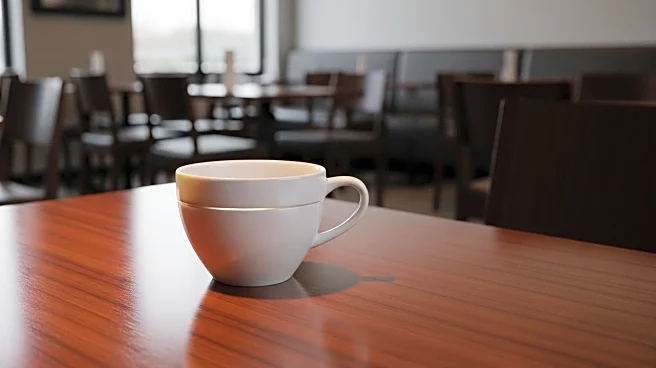What's Happening?
Starbucks has announced plans to close approximately 400 stores in North America as part of a $1 billion restructuring initiative. This decision comes in response to shifting consumer behaviors and increased competition. The closures, which represent about 1% of Starbucks' global locations, are accompanied by layoffs of 900 corporate employees. CEO Brian Niccol stated that the stores being closed were not meeting customer expectations or generating sufficient revenue. The company is also facing challenges from independent coffee shops and growing chains, as well as consumer pushback against rising prices. Starbucks is attempting to revitalize its brand by renovating 1,000 stores to create a more inviting atmosphere, reminiscent of its traditional 'third place' concept.
Why It's Important?
The closure of Starbucks stores highlights significant shifts in consumer preferences and the competitive landscape of the coffee industry. As consumers move away from urban centers and seek more affordable options, Starbucks is forced to adapt its strategy. The restructuring plan aims to address these challenges by focusing on customer experience and operational efficiency. The impact of these changes could be substantial for Starbucks' market position, as it seeks to regain its footing amidst economic uncertainties and evolving consumer demands. The company's ability to successfully implement these changes will be crucial for its long-term sustainability and growth.
What's Next?
Starbucks plans to continue its restructuring efforts by opening new stores in more strategic locations and enhancing the customer experience in existing ones. The company aims to complete renovations across all U.S. stores within the next three years. Analysts are cautiously optimistic about the potential for a successful turnaround under CEO Brian Niccol, who has a track record of revitalizing brands. However, the effectiveness of these initiatives will depend on Starbucks' ability to navigate ongoing economic challenges and competitive pressures.









